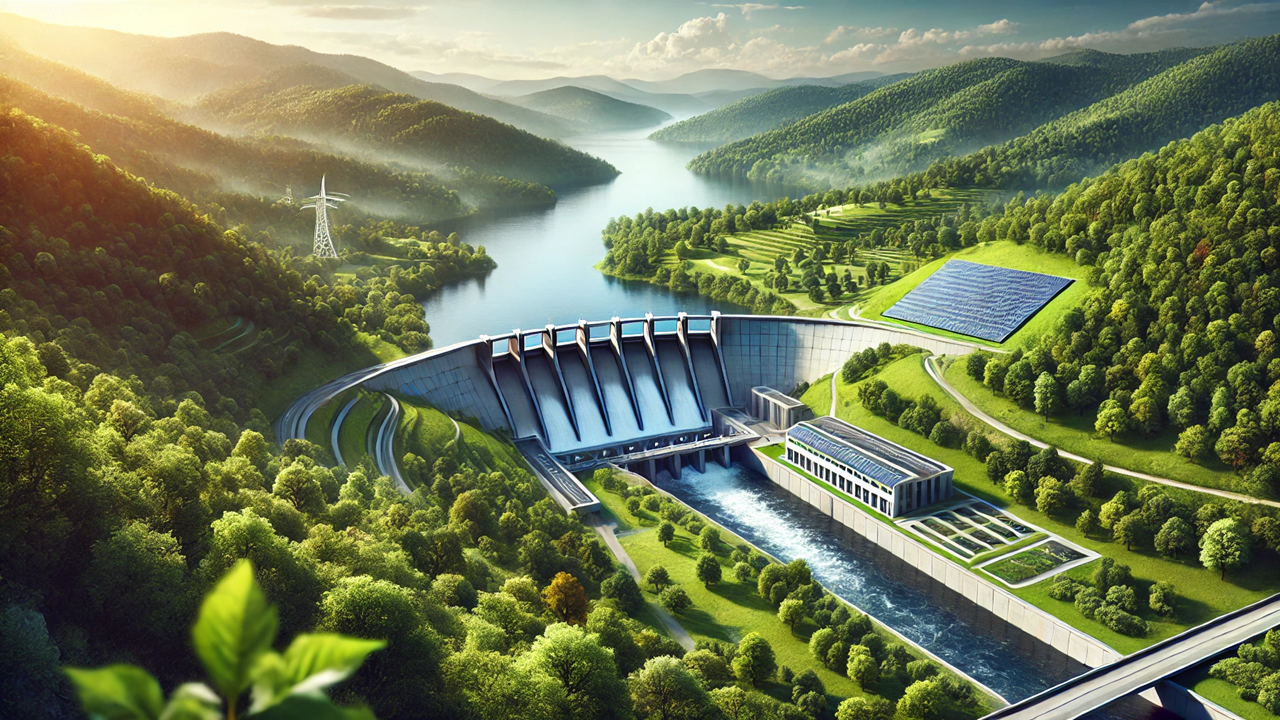Leveraging Private Sector Expertise for Sustainable Hydropower Growth
This article delves into the insights from the report "Leveraging Private Sector Solutions in Large Hydropower Projects," highlighting how public-private partnerships can transform hydropower development. By addressing financial challenges, introducing advanced technologies, and prioritizing sustainability, these collaborations offer a path to reliable, eco-friendly energy solutions.

In its insightful report, "Leveraging Private Sector Solutions in Large Hydropower Projects," the World Bank Group illuminates how public-private partnerships (PPPs) can revolutionize the development of hydropower projects. This comprehensive document underscores the pivotal role of private sector engagement in addressing the growing global demand for sustainable energy while managing financial and operational risks.
Challenges in Large Hydropower Development
Large hydropower projects, while vital for meeting energy needs, face numerous obstacles. The financial complexity is daunting, with governments often struggling to secure the substantial capital required. Furthermore, these projects are fraught with risks, including environmental concerns, compliance with stringent regulations, and potential construction delays. Balancing these challenges with the imperative of sustainability is a recurring theme.
The Role of the Private Sector
The report highlights the significant contributions of private sector stakeholders in overcoming these challenges. Their expertise in innovative financing models, such as blended finance and green bonds, helps mobilize the capital required for large-scale projects. Additionally, the private sector introduces advanced technologies—like artificial intelligence and predictive maintenance—that enhance project efficiency and durability. By fostering efficiency and innovation, private entities ensure that projects remain within budget and on schedule.
Public-Private Partnerships: A Game-Changer
PPPs emerge as a cornerstone of successful hydropower development. These partnerships are structured to distribute risks equitably between public and private participants. The report features compelling case studies demonstrating how collaborative efforts have successfully leveraged private financing and technical expertise while preserving public ownership of resources. To attract private investments, the importance of a strong regulatory and policy framework is emphasized.
Sustainability and Social Responsibility
Sustainability remains a non-negotiable aspect of hydropower development. Private sector involvement often brings a heightened commitment to environmental and social impact assessments. Stakeholder consultations, as part of these efforts, ensure that local communities are actively engaged and their concerns addressed, fostering greater acceptance and long-term project success.
Benefits of Private Sector Engagement
The advantages of private sector participation extend beyond financial relief for governments. Risk-sharing arrangements allow public entities to allocate resources to other critical priorities. Moreover, private investments catalyze job creation during construction and operational phases while accelerating energy accessibility for underserved regions.
Key Takeaways
The report underscores the transformative potential of integrating private-sector solutions into hydropower projects. A collaborative approach can effectively address financial, technological, and operational challenges. Governments, however, must establish robust policies to attract and manage private-sector partnerships. Above all, environmental integrity and social inclusivity must remain at the forefront of every initiative.
As the report "Leveraging Private Sector Solutions in Large Hydropower Projects" concludes, public-private collaboration offers a pragmatic and sustainable path forward, ensuring that hydropower remains a reliable and eco-friendly energy source for future generations.
- FIRST PUBLISHED IN:
- Devdiscourse










